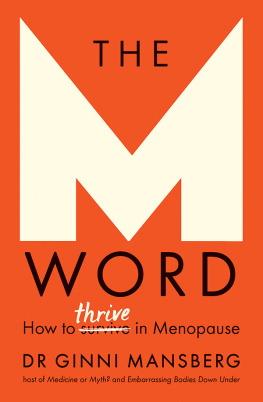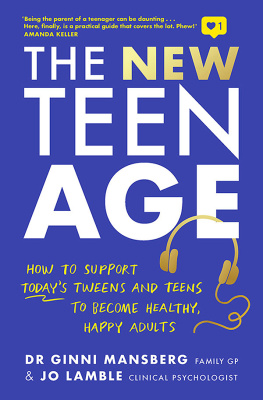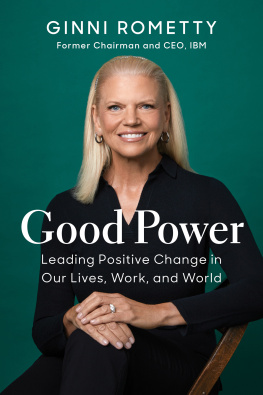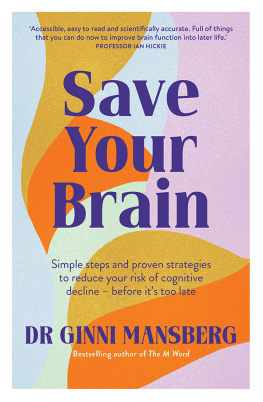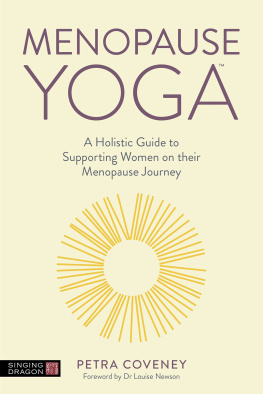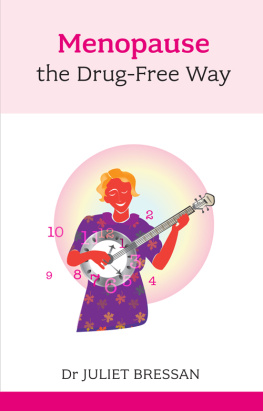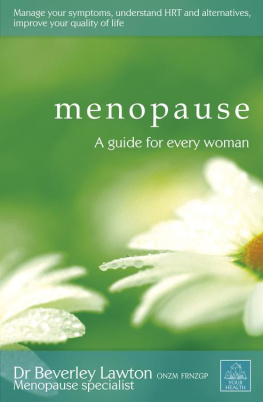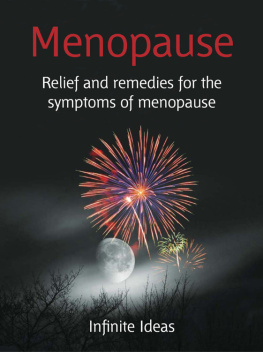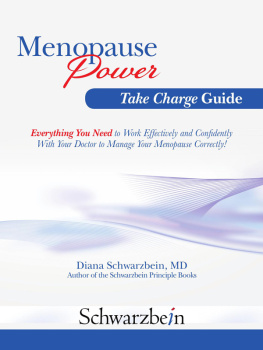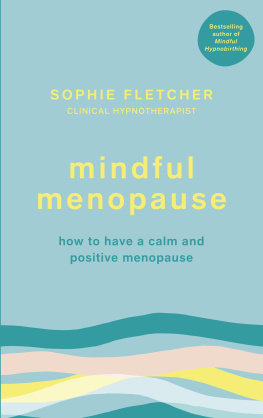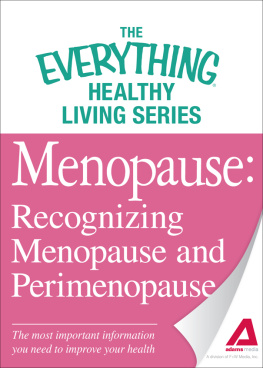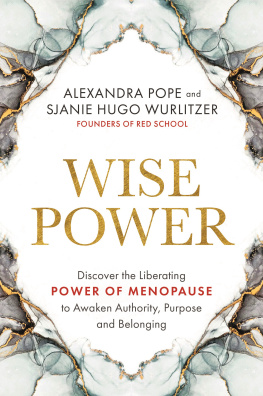Ginni Mansberg - The M word : how to thrive in menopause
Here you can read online Ginni Mansberg - The M word : how to thrive in menopause full text of the book (entire story) in english for free. Download pdf and epub, get meaning, cover and reviews about this ebook. year: 2020, genre: Romance novel. Description of the work, (preface) as well as reviews are available. Best literature library LitArk.com created for fans of good reading and offers a wide selection of genres:
Romance novel
Science fiction
Adventure
Detective
Science
History
Home and family
Prose
Art
Politics
Computer
Non-fiction
Religion
Business
Children
Humor
Choose a favorite category and find really read worthwhile books. Enjoy immersion in the world of imagination, feel the emotions of the characters or learn something new for yourself, make an fascinating discovery.
- Book:The M word : how to thrive in menopause
- Author:
- Genre:
- Year:2020
- Rating:4 / 5
- Favourites:Add to favourites
- Your mark:
- 80
- 1
- 2
- 3
- 4
- 5
The M word : how to thrive in menopause: summary, description and annotation
We offer to read an annotation, description, summary or preface (depends on what the author of the book "The M word : how to thrive in menopause" wrote himself). If you haven't found the necessary information about the book — write in the comments, we will try to find it.
Ginni Mansberg: author's other books
Who wrote The M word : how to thrive in menopause? Find out the surname, the name of the author of the book and a list of all author's works by series.
The M word : how to thrive in menopause — read online for free the complete book (whole text) full work
Below is the text of the book, divided by pages. System saving the place of the last page read, allows you to conveniently read the book "The M word : how to thrive in menopause" online for free, without having to search again every time where you left off. Put a bookmark, and you can go to the page where you finished reading at any time.
Font size:
Interval:
Bookmark:

Published in 2020 by Murdoch Books, an imprint of Allen & Unwin
Copyright Dr Ginni Mansberg
All rights reserved. No part of this book may be reproduced or transmitted in any form or by any means, electronic or mechanical, including photocopying, recording or by any information storage and retrieval system, without prior permission in writing from the publisher. The Australian Copyright Act 1968 (the Act) allows a maximum of one chapter or 10 per cent of this book, whichever is the greater, to be photocopied by any educational institution for its educational purposes provided that the educational institution (or body that administers it) has given a remuneration notice to the Copyright Agency (Australia) under the Act.
Murdoch Books Australia
83 Alexander Street, Crows Nest NSW 2065
Phone: +61 (0)2 8425 0100
murdochbooks.com.au
Murdoch Books UK
Ormond House, 2627 Boswell Street, London WC1N 3JZ
Phone: +44 (0) 20 8785 5995
murdochbooks.co.uk

A catalogue record for this book is available from the British Library
ISBN 978 1 76052 487 6 Australia
ISBN 978 1 91163 238 2 UK
eISBN 978 1 76087 318 9
Cover design by Design By Committee
Text design by Susanne Geppert
Typeset by Midland Typesetters
The purchaser of this book understands that the information contained within is not intended to replace one-to-one medical advice. It is understood that you will seek full medical clearance by a licensed physician before making any changes mentioned in this book. The author and publisher claim no responsibility to any person or entity for any liability, loss or damage caused or alleged to be caused directly or indirectly as a result of the use, application or interpretation of the material in this book.
CONTENTS
My nana used to call it the change of life. It was a change alright. With menopause, many women like Nana went from feeling young and sexy to old almost overnight. Not only did they lose their periods and premenstrual tension (something that should have been an enormous relief), but many felt that they lost their femininity, too. With unpredictable hot sweats, grey pubic hair and dried-out vaginas, they often felt unattractive and useless. What possible value did they have? Besides caring for their elderly husbands and doing free babysitting for the grandchildren?
So when the 1980s rolled around and millions of women started taking the all-new hormone replacement therapy medication (HRT), the promised elixir of youth, things started looking up for menopausal women. Not only were they free of hot flushes (and remarkably free of wrinkles, too), but they were simultaneously riding high on a feminist revolution. This came courtesy of the trailblazers who had fought for their access to universities and career jobs, and the contraception that meant they didnt have to care for a dozen children. Plus the hairdressers who allowed them to banish grey hair, and the lawyers who got them out of marriages they didnt want to be in anymore. Not to mention the social security that meant being single wasnt a one-way ticket to the poor house.
Menopause meant finally letting go of the angst and self-doubt that had plagued them as younger women, and being ready to enjoy the next phase of their lives, a bit calmer, a bit sexier and a bit more financially secure than their mothers had been at the same stage.
But, as in all good stories, there was a twist. This is the tale of how one misguided press release, from a study claiming to be something it wasnt, triggered a feminist own-goal and saw the elixir of youth rebranded as a potentially deadly beauty treatment overnight. It was a moment that killed off a vital industry and led to an avalanche of suffering for millions of women.
The early termination, in 2002, of the Womens Health Initiative (WHI), a massive scientific study, was lauded in the media as a triumph of independent science over misogyny and the profiteering of drug companies from womens insecurities. The headlines blared that HRT was not the panacea for natural aging but instead, they claimed, it caused breast cancer. Overnight the use of HRT plummeted: women threw their pills in the bin; governments put out warnings; lawyers started suing; doctors refused to prescribe HRT and then lost the know-how to do it; and pharmaceutical companies rolled down the shutters on their womens health divisions.
So, women were told that hot flushes and painful vaginas werent such terrible symptoms to endure. Suck it up, Princess, they were advised. Menopause Societies around the world tried to protest Stop. Youve got it wrong. The WHI has been misinterpreted. But their voices were too soft and their messages came too late. Women had lost agency and had lost choice. By the time the next bomb exploded, in the form of a review published in the medical journal The Lancet, further emphasising the HRTbreast cancer link, the collective womens health movement shrugged. Here we go again!
How did all this happen?
I have worked in news rooms. I understand how tough it is to explain the findings of a study, when you have just an hour to digest the press release and script the results, next to nobody to interview and another story to be written at the same time. I dont blame the journalists. But doctors let women down: from the authors of the WHI, who knew that the conclusion of the study and its accompanying press release were wrong, yet waited many years to set the record straight; to the peak bodies, who saw the study findings for what they were but were too timid to push back hard against the harmful messages, choosing instead to shout into their own tiny menopause echo-chambers. Pharmaceutical companies let women down by being so easily beaten into submission, pulling up stumps and walking away from womens health altogether.
But times, they are a-changing. Menopause seems to be having a little #MeToo moment. Finally, in the era of #TimesUp, women are standing up for themselves and each other. An unexpected side revolution has been the desire to take back the power around menopause. Lets all be a part of that movement.
Here are some interesting statistics from the UK advertising industry: women going through menopause spend 24 per cent more money on exercise and fitness than their premenopausal sisters; they spend 16 per cent more on beauty and make-up; 29 per cent more on skin care; 29 per cent more on health supplements; and 22 per cent more on travel. Does business want to ignore us? I think not. And, by the way, 76 per cent of women over 50 feel either very confident or somewhat confident in their own skin.
As I moved through my forties, several things happened at once that ultimately led to the writing of this book.
Being a doctor, a GP with a special interest in womens health, menopause and perimenopause are never far from my mind or my daily clinical load. But I felt increasingly ill equipped to deal with the issues my menopausal women were bringing me. Training to become a GP in the current era means I missed out on access to the information my older colleagues had about HRT. Pharma companies had slow-played the womens health market after the WHI scandal had seen the floor fall out of the HRT market. Luckily for me, I am the host of Drivetime Medical, an educational podcast for doctors that requires me to interview experts in many medical fields in Australia and around the world. Interviewing Professor Rod Baber and Dr Terri Foran (both extensively interviewed for this book) was jaw dropping in revealing both how much I didnt know, and how much is available for women suffering the symptoms of menopause. I wanted to learn more. I joined the Australian Menopause Society; I delved further into the menopause world and got hooked. There was a major story to be told here: the chasm between what was being discussed in that tiny menopause echo-chamber and what was actually happening on the ground for women was too great.
Font size:
Interval:
Bookmark:
Similar books «The M word : how to thrive in menopause»
Look at similar books to The M word : how to thrive in menopause. We have selected literature similar in name and meaning in the hope of providing readers with more options to find new, interesting, not yet read works.
Discussion, reviews of the book The M word : how to thrive in menopause and just readers' own opinions. Leave your comments, write what you think about the work, its meaning or the main characters. Specify what exactly you liked and what you didn't like, and why you think so.

